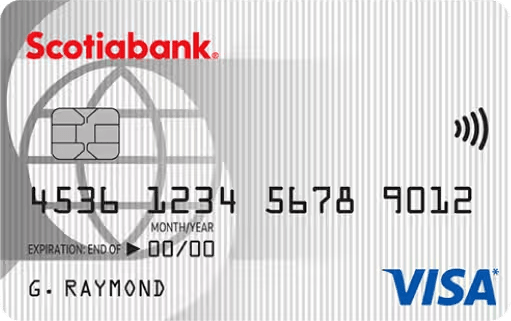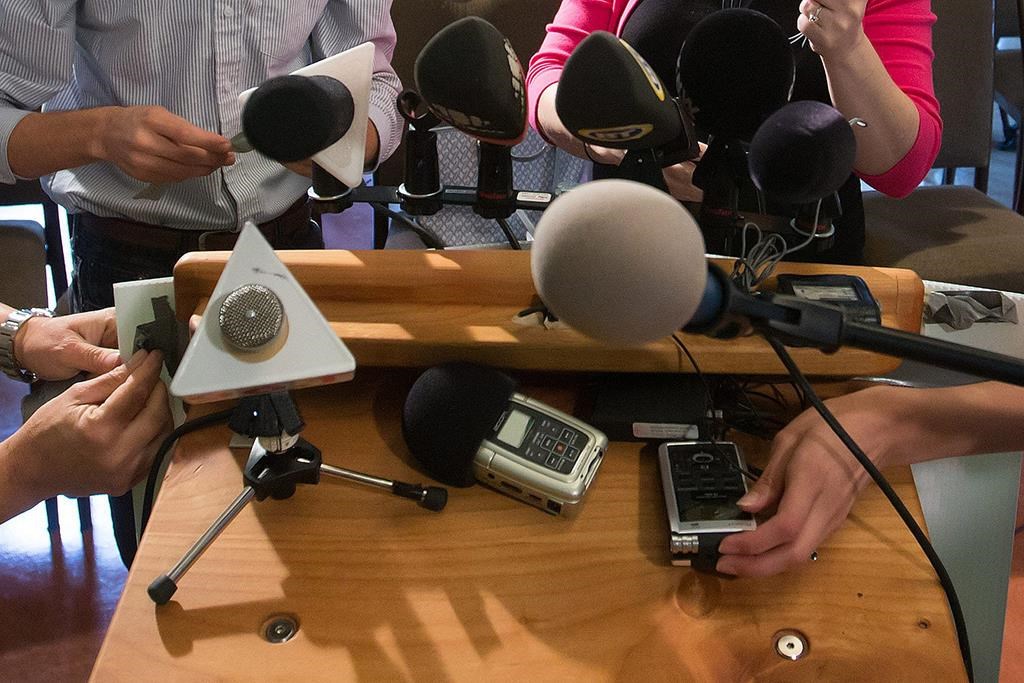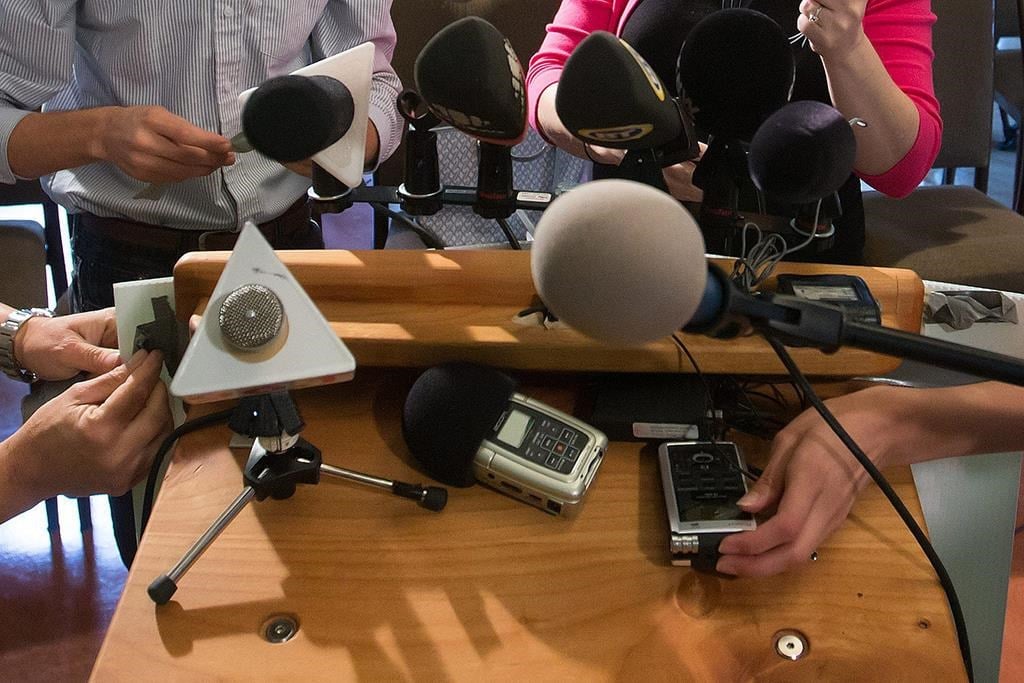Quick overview
The Scotiabank Value Visa Card is a low interest card with an APR of 12.99% and a promotional period of 0% on balance transfers for the first 10 months. It costs $29 a year and the first year is free. Some downsides to the card are that it doesn’t offer rewards and there are similar cards in the market that have no yearly fees. Let’s dig in to see if the Scotiabank Value Visa Card deserves a spot in your wallet.
Who is this card for?
Anyone who wants a lower interest rate – particularly those who might carry a balance from month-to-month. It’s also a great choice for those interested in transferring an existing balance, since it offers 10 months of 0% interest on transfers and for those looking to build credit with a low cost credit card.
Scotiabank Value Visa Card pros and cons
Pros
Cons
Welcome bonus
Currently, there is no welcome bonus.
How to earn points
This card does not offer points or cash back. This card is geared toward saving on interest.
Key benefits
- Low interest rates on purchases, balance transfers, and cash advances.
- Free supplementary card.
Insurance coverage
There are two optional insurance bundles you can choose from with Scotia Credit Card Protection: Basic and Comprehensive. Both offer financial protection by paying off your account balance or helping to cover monthly payments in the event of certain life events, such as death, critical illness, disability and others.
Basic Protection includes:
- Life Benefit
- Critical Illness Benefit
- Hospitalization Benefit
Comprehensive Protection includes:
- Life Benefit
- Critical Illness Benefit
- Hospitalization Benefit
- Disability Benefit
- Job Loss Benefit
- Strike or Lockout Benefit
Keep in mind that these coverages come at an additional cost to your yearly card fee. Let's say you're carrying a $2,000 balance on your card. Here's how much you'd pay monthly for each plan:
- Comprehensive Protection: The rate is $1.09 per $100 of your balance. So, for a $2,000 balance, you pay ($2,000 / $100) x $1.09 = $21.80 per month.
- Basic Protection: The rate is $0.89 per $100 of your balance. This means you pay ($2,000 / $100) x $0.89 = $17.80 per month.
(Something to keep in mind is that, after your 70th birthday, both bundles reduce to Life Benefit only at a cost of $0.49 per $100 of your balance.)
While this sort of insurance is a great option to help cover expenses during stressful life events, there are some alternatives you can consider.
An emergency fund gives you flexibility and doesn't cost extra. You can use it for any urgent need, not just those covered by insurance. Plus, it can earn interest. However, you need discipline to build and maintain it – without dipping into it.
Term life insurance, on the other hand, can offer broader and potentially higher coverage than Scotia Credit Card Protection. The premiums are usually fixed, making it cost-effective over time. But, it's limited to a specific term and might require health checks.
Credit card insurance like Scotia's is simple to get and directly covers your card debt. But it can be pricey, especially if your balance is high, and it only covers specific scenarios.
Weigh these options against your needs and financial situation to decide what's best for you.
Extras
- Up to 25% off base rates at participating AVIS and Budget locations.
- VISA payWave for faster payments.
What people on Reddit say about this card
Reddit users are known for their honest discussion, and that holds true about their posts about the Scotiabank Value Visa Card. It seems users have faced challenges, particularly with balance transfers. Their experiences draw attention to how difficult it can be to transfer a balance from one credit card to another.
One user was puzzled by the process of balance transfers, especially the discrepancy between the cash withdrawal rate and the advertised balance transfer rate. This confusion is understandable; credit card terms can often be complex and confusing.
Another user's experience highlights a common issue with balance transfer cards. They found that payments were first applied to new purchases, which were charged at a higher interest rate, before being applied to the 0% balance transfer. This is, in fact, a standard practice in the credit card industry, but it can be frustrating and surprising for those who aren’t aware of it. And, as we mentioned, credit card fine print isn’t known for being super clear
These stories resonate with the challenge of understanding credit card terms. They’re a reminder of the importance of understanding how balance transfers work, including how payments are allocated. Being informed can help you make the most of promotional offers and avoid unexpected costs.
How this card compares
Scotiabank Value Visa Card Vs. MBNA Trueline Mastercard
Scotiabank Value Visa Card and MBNA Trueline Mastercard are both appealing for individuals seeking low-interest credit cards, but they cater to different needs.
- Interest rates: Both the Scotiabank Value Visa and MBNA Trueline Mastercard offer a competitive 12.99% interest rate on purchases and balance transfers.
- Balance transfer offer: Scotiabank Value Visa shines with its 0% introductory rate on balance transfers for the first 10 months. MBNA Trueline’s offer is a little stronger with 0% on balance transfers for 12 months.
- Annual fee: The Scotiabank Value Visa costs $29 a year (with the first year free). The MBNA Trueline Mastercard has no annual fee.
- Both cards offer discounts on car rentals through Avis and Budget.
So, which is for you? If you're looking for a card with a low balance transfer rate to manage existing debts, both cards are a solid option. We know, you were hoping for a clear winner, weren’t you? The truth is they both have similar benefits and interest rates, but the MBNA Trueline Mastercard shines with its no yearly fees.
Scotiabank Value Visa Card Vs. National Bank Syncro Mastercard
Comparing Scotiabank Value Visa Card and National Bank Syncro Mastercard:
- Interest rates: Scotiabank Value Visa offers a fixed 12.99% interest rate, while National Bank Syncro Mastercard has an interest rate of 11.2%.
- Balance transfer offer: Scotiabank's 0% introductory rate on balance transfers for the first 10 months is a standout feature, which National Bank Syncro doesn't match.
- Annual fee: Scotiabank Value Visa costs $29 per year, whereas National Bank Syncro charges $35.
- Additional benefits: Scotiabank offers rental car discounts, while National Bank Syncro provides purchase protection, extended warranty, and VIP experiences and special offers.
If you prioritize a low balance transfer rate and a low annual fee, Scotiabank Value Visa is a great choice. However, National Bank Syncro Mastercard costs a little more per year but offers a slightly lower interest rate.
Scotiabank Value Visa Card Vs. BMO Preferred Rate Mastercard
Let’s look under the hoods of the Scotiabank Value Visa Card and the BMO Preferred Rate Mastercard:
- Interest rates: Scotiabank Value Visa offers a 12.99% interest rate on purchases and cash advances, while BMO Preferred Rate Mastercard offers a slightly higher rate of 13.99% on purchases and 15.99% on cash advances.
- Balance transfer offer: Scotiabank's 0% introductory rate for 10 months on balance transfers is a significant advantage over BMO's offer, which is 0.99% for nine months.
- Annual fee: Both cards cost $29 a year, making them equally attractive in terms of cost.
- Additional benefits: Scotiabank provides rental car discounts, whereas BMO offers extended warranty and purchase protection.
Scotiabank Value Visa is preferable for those seeking a low balance transfer rate to manage existing debts. BMO Preferred Rate Mastercard, while slightly higher in interest rates, offers additional benefits like purchase protection and extended warranty, which might appeal to some users.
Overall, the Scotiabank Value Visa Card stands out for its low balance transfer rate, making it an excellent choice for debt consolidation and management.
Is this card worth it?
The Scotiabank Value Visa Card is worth considering if you want to consolidate and pay off existing debt, thanks to its low 0% introductory rate on balance transfers for the first 10 months and a competitive 12.99% interest rate on purchases and cash advances. With its low annual fee, it's also a cost-effective choice. However, it lacks rewards and some of the additional benefits offered by other cards. Its value largely depends on your specific financial needs, particularly if you're focused on reducing interest on existing balances or seeking a low-cost, basic credit card.
FAQs
Compare other Scotiabank credit cards
Compare other balance transfer credit cards
Compare other low interest rate credit cards
Disclaimer
The content provided on Money.ca is information to help users become financially literate. It is neither tax nor legal advice, is not intended to be relied upon as a forecast, research or investment advice, and is not a recommendation, offer or solicitation to buy or sell any securities or to adopt any investment strategy. Tax, investment and all other decisions should be made, as appropriate, only with guidance from a qualified professional. We make no representation or warranty of any kind, either express or implied, with respect to the data provided, the timeliness thereof, the results to be obtained by the use thereof or any other matter.






